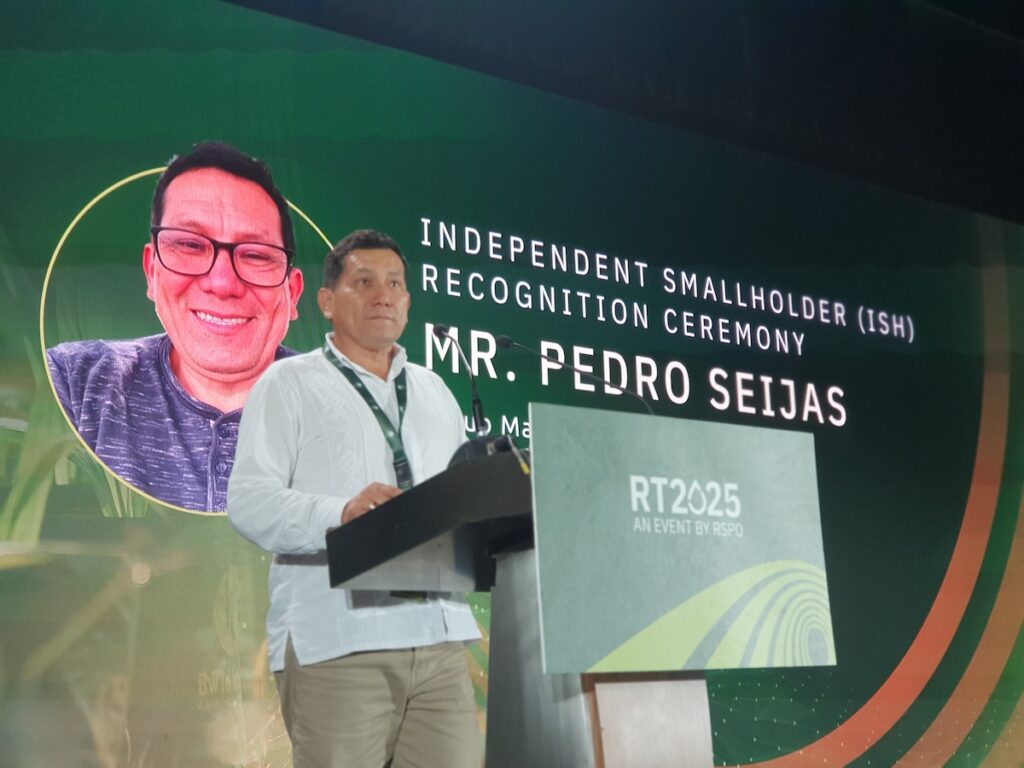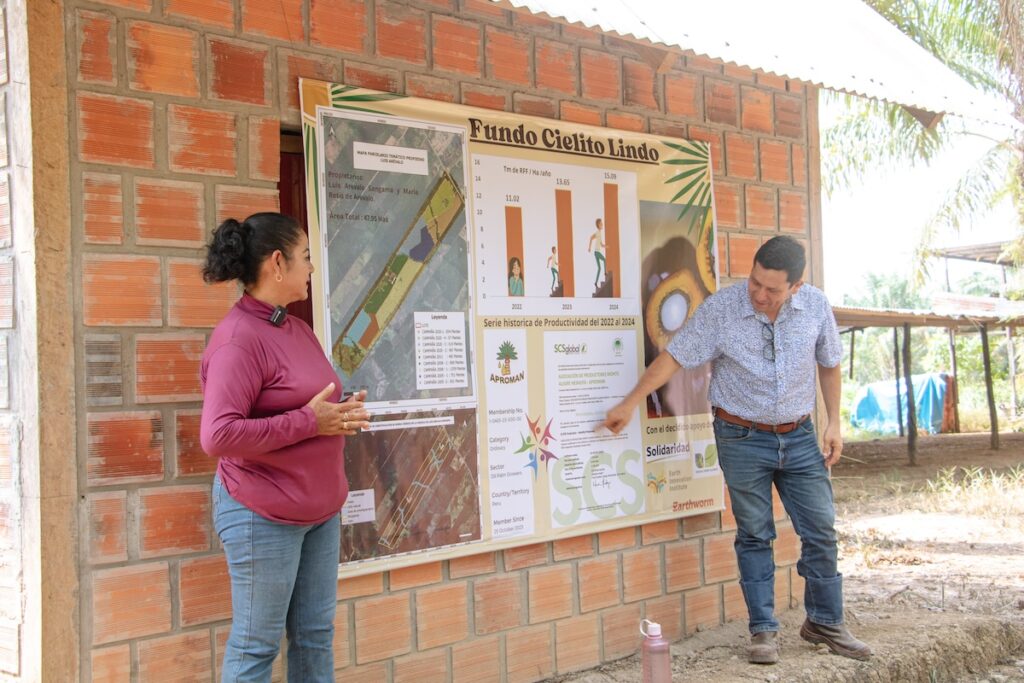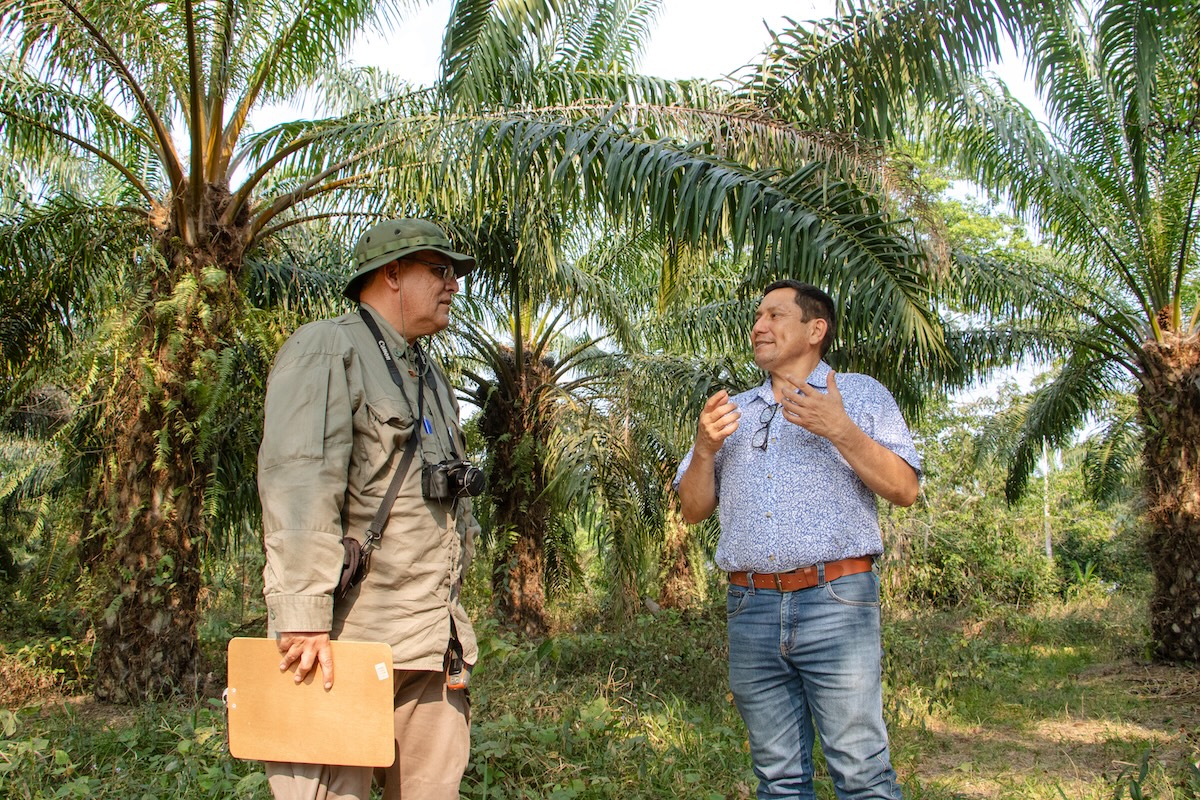At the RT2025 conference in Kuala Lumpur (November 3–5), smallholders are demanding that their voices be heard. They are urging global buyers and corporations to immediately step up support and buy more volume of their produce, or buy their RSPO credits: credits that are meant to compensate farmers for their sustainability efforts. In short, farmers demand to be a more integral part of the palm oil value chain.
On day one of the conference, small-scale farmer and ISH group manager Pedro Seijas from Peru delivered a strong call for support. Seijas, the Chairman of the National Association of Independent Palm Oil Farmers (ANICAP), stated:
“Today, nearly 50,000 smallholders certified under the RSPO Independent Smallholder Standard (ISH) are making a real contribution to the sector’s transformation. We’ve done our part. But we share a common challenge: shifting from implementing sustainability to making a living from sustainability. The way forward requires a comprehensive strategy to stimulate demand for sustainably produced material —one that combines visibility, education, and shared responsibility.”

A $282 Billion Industry Overlooking Smallholders
Marieke Leegwater, senior oil palm expert at Solidaridad, confirms that Seijas touches on a sensitive and critical issue. “The embedded palm oil value chain, with a value of $282 billion, generates huge profits for companies, yet smallholder oil palm farmers often risk living in poverty. Smallholders contribute around 30% of global production and play an increasingly central role in rural economic development and preserving biodiversity. However, this pivotal role is often overlooked, with policies implemented by buying companies focusing on compliance, creating requirements that are more easily met by large industrial plantations.”

To support smallholders rewarding their sustainability efforts, the RSPO created the Independent Smallholder Credits, a mechanism designed to provide financial incentives to certified farmers. However, the system does not sufficiently deliver the desired results: while the number of certified independent smallholders is growing rapidly, the purchase of their corresponding credits is declining.
Leegwater expresses concern: “The lack of uptake of Independent smallholder credits is part of a bigger problem, where smallholder realities are insufficiently taken into account by end-users of palm oil. The lack of uptake of credits exemplifies this problem. The number of smallholders achieving RSPO certification over the last year was impressive. It is quite frustrating to see that their certificates are not being bought now. We call upon all buyers to urgently look into the options they have to buy these credits for a fair price.”

The Path to Sustainable Palm Oil Value Chains Must Be Inclusive
In May, Solidaridad published the global Palm Oil Barometer, laying down recommendations on how to do this. The report maps the smallholder situation and gives recommendations for companies to ensure more smallholder-inclusive sourcing.
The core question, according to Seijas, remains: “It is not ‘How many producers can we certify?’ but rather ‘How do we generate sustainable incentives that match the tremendous effort of smallholders?’ The answer starts with buyers closing the loop.”

